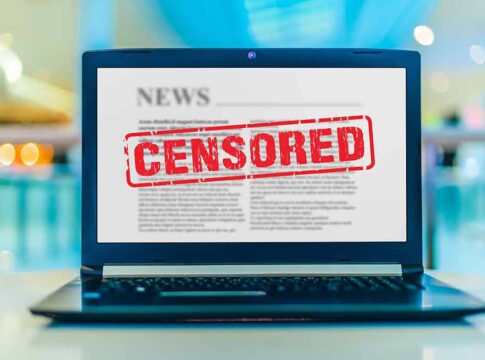Allegations of the CIA manipulating conservative media via the National Endowment for Democracy (NED) spotlight the pressing need for transparency. NED’s increased budget raises concerns about lack of oversight. Calls for NED’s dissolution to curb domestic propaganda.
NED: A Tool for Covert Influence
The NED, largely operated by individuals aligned with the Democratic party, faces scrutiny for allegedly duplicating roles of other governmental bodies, pouring resources into dubious media initiatives. Its $321 million budget in 2022, a sharp rise from $180 million three years earlier, underscores the concerns about unchecked spending. Public accountability is absent, as no new grant information has been released since 2021, raising transparency issues. These factors foster distrust among conservatives regarding its operations.
The troubling maneuvers of the NED in U.S. media are likened to operations a covert agency might conduct in foreign nations. Allegations point to its role in suppressing conservative online voices through a ‘disinformation industrial complex’, raising ethical and legal questions, especially regarding the use of taxpayer funds in such endeavors. Claims of partisanship further muddy the waters, as accusations fly about the influence of political donations on its agenda.
The National Endowment for Democracy complements the CIA’s regime change operations around the world by funding and training media and political advocacy groups to execute strategies that will destabilize their governments. pic.twitter.com/HIHCGsxy1X
— MintPress News (@MintPressNews) March 16, 2023
Victoria Nuland’s Controversial Leadership
Victoria Nuland, a key figure known for orchestrating regime changes, currently leads the NED. The implications of her leadership are profound, heightening fears about potential domestic influence through government-sponsored media manipulation. Some criticize the organization’s alignment with the CIA’s objectives, ramping up claims about NED’s use as a tool for covert psychological operations against not just foreign audiences but American citizens.
The NED’s tactics have sparked intense debate over its real purpose. As its substantial budget remains shielded and classified, “sensitive” operations continue without significant oversight. Critics argue that this regime change machinery masks itself as pro-democracy and human rights advocacy while operationalizing government narratives, potentially influencing elections and public opinion indirectly.
🚨 EXPOSED! The State Department has been caught secretly acting as the CIA, concealing its covert operations under the guise of the National Endowment for Democracy! What are they really up to? 🕵️♂️ pic.twitter.com/zYSxRdDkU7
— Redacted (@TheRedactedInc) November 26, 2024
Calls for Reform and Transparency
Critics demand that the government reevaluate the funding and operational transparency of the NED. Dissolution proposals focus on the organization’s violation of democratic principles through non-disclosure and partisan objectives. Advocates of reform believe this could reintroduce balance and confidence in U.S. media outlets, forestalling covert influence attempts within American borders. This movement contends that transparency is vital to ensure that public funds and power are wielded ethically and legally.
The future of the NED, especially in its operations within the U.S., remains in question as public discourse heightens around these controversial practices. The actions taken by policymakers and oversight authorities will shape the narrative of governmental influence in media, with considerable implications for democratic integrity.


